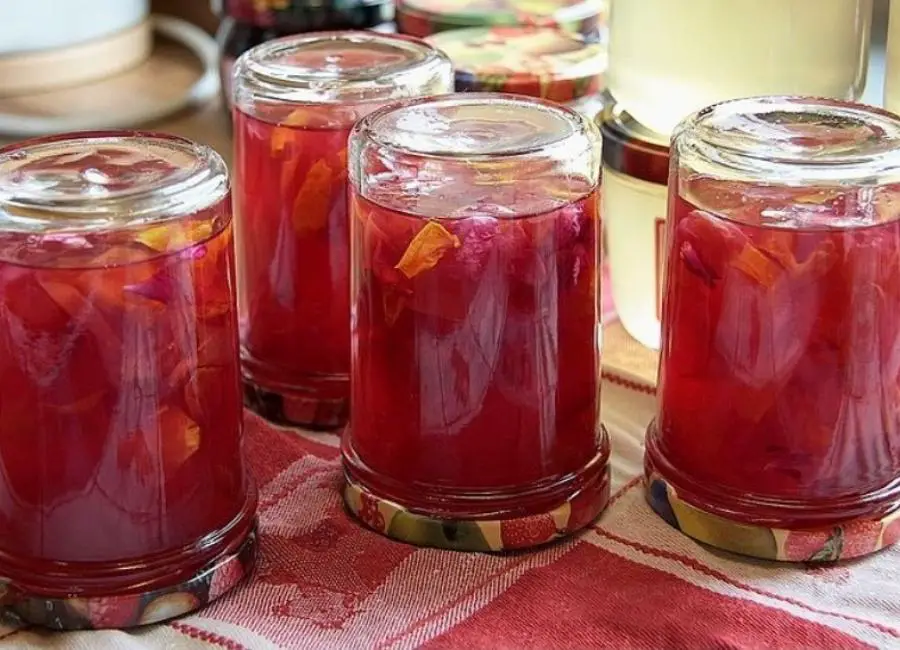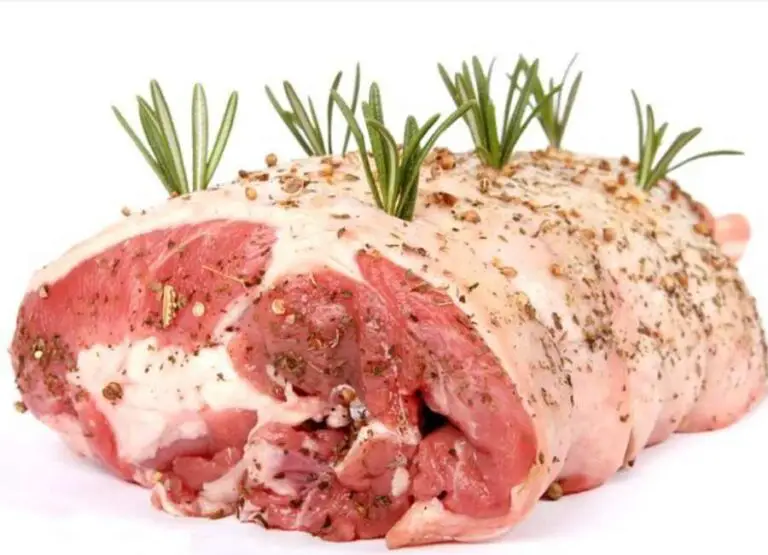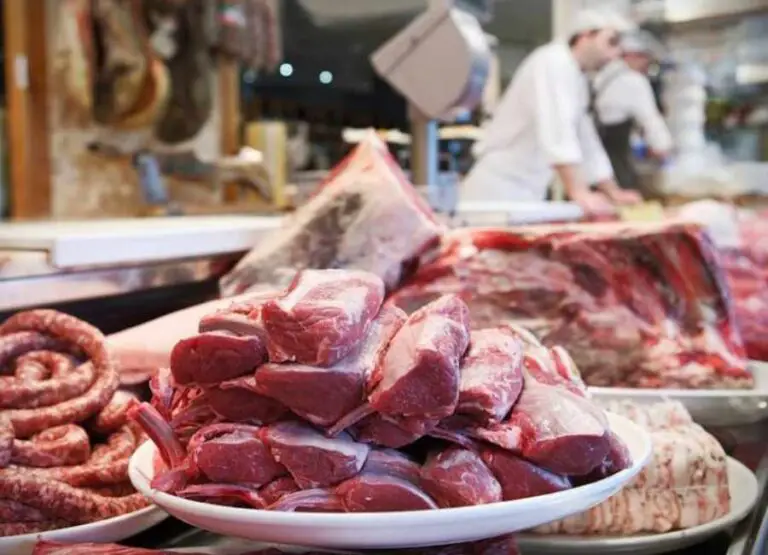Can You Store Canned Food In The Fridge
Are you tired of throwing away half-full cans of food because you weren’t sure whether they could be stored in the fridge or on the pantry shelf?
You’re not alone! Many people are unsure about the best way to store canned goods.
In this brief blog post, we’ll explore the question “Can You Store Canned Food In The Fridge?” and provide you with some helpful tips to make sure your food stays fresh and delicious for as long as possible.
What is canned food?
Canned food is a type of food preservation in which food is processed and sealed in an airtight container, such as jars or steel and tin cans.
It provides a shelf life that typically ranges from one to five years, although it can be much longer under specific circumstances.
Canned food can include a variety of foods, including but not limited to fruits, vegetables, meats, and beans.
The canning process involves various methods, such as pasteurization, boiling, refrigeration, freezing, and drying to prevent the food from being spoiled before and during containment.
Double seams provide an airtight seal to the can, and workers must ensure the can’s quality during the seaming process to guarantee air-tightness.
Can you store canned food in the fridge?
Yes, you can store canned food in the fridge, however, it’s not necessary to refrigerate unopened cans since they are already shelf-stable.
According to the USDA’s Food Safety and Inspection Service, it’s safe to leave unopened canned food at room temperature, but it’s best to store them in a cool, dry place.
Once a can of food has been opened, any remaining food should be transferred to a separate container with a lid and stored in the refrigerator for safety reasons.
High-acid canned goods such as tomato products or fruit should always be refrigerated after opening to prevent spoilage.
It’s important to make sure that the can or container used for storage is clean and food-safe to avoid contamination.
Factors to consider for proper canned food storage
There are several factors to consider for proper canned food storage, including:
- Shelf life: Canned goods have a long shelf life, but it’s important to pay attention to the expiration date and use the oldest cans first.
- Type of food: High-acid foods like canned tomatoes and fruit juices can react chemically with the metal container, causing can corrosion over time.
- Storage temperature: Canned foods should be stored in a cool, dry place at temperatures between 50°F to 70°F (10°C to 21°C).
- Packaging: Cans should be examined for bulging, leaking, or rust as these can be signs of spoilage or contamination.
- Use after opening: Once a can has been opened, it should be stored in an airtight container in the refrigerator and used within 5-7 days.
Proper canned food storage is crucial to prevent food spoilage, contamination, or illness.
How to store canned food in the fridge
Canned food is typically shelf-stable and can be stored at room temperature, but some types of canned food may require refrigeration after opening.
Here is a step-by-step process for storing canned food in the fridge:
- Check the expiration date: Before storing the canned food in the fridge, make sure to check the expiration date. If it is expired, discard the can.
- Transfer to an airtight container: If the can is partially used, transfer its contents to an airtight container with a lid. This will help to maintain the freshness of the contents and prevent contamination.
- Label the container: Label the container with the name of the contents and the date it was opened. This will help you keep track of the contents and ensure that you use them before they expire.
- Store in the fridge: Once the contents are transferred to the airtight container, store the container in the fridge. The temperature should be set at or below 40°F (4°C) to ensure that the contents remain fresh.
- Consume the stored canned food within 3-4 days for the best quality.
By following these steps, you can ensure that your canned food remains fresh and safe to eat when stored in the fridge.
Best practices for storing canned food
The best practices for storing canned food include keeping it in a cool, dry place away from sources of heat and light such as furnaces and pipes.
The ideal temperature range for storing canned food is between 50 and 70 degrees Fahrenheit.
It is important to check canned goods for damage before storing them, such as swelling, leakage, punctures, holes, fractures, or extensive rusting.
Home-canned food should be stored for no longer than 12 to 15 months, while commercially canned food can last for up to two years.
Once a can is opened, it should be refrigerated and consumed within 7 to 10 days.
Additionally, organizing canned goods with tiered organizers or sliding pantry shelves can make them easier to access and more visible.
FAQs
Can I store canned food in the fridge?
Yes, you can store canned food in the fridge, but it’s important to remember that not all canned foods are ideal for refrigeration. Foods that are high in acid, such as tomatoes, can actually cause the metal in the can to leach into the food and taint the flavor. If you must refrigerate canned food, transfer it to a glass or plastic container first.
How long can you keep canned food in the fridge?
After opening a can of food, you should transfer any unused portions to an airtight container and store it in the fridge. Most canned foods will stay fresh in the fridge for 3–4 days, but this can vary depending on the specific food. Check the expiration date on the can for guidance.
Can you put a whole can of food in the fridge?
While it’s technically possible to store a whole can of food in the fridge, it’s not recommended. When you leave a can of food unopened and store it in the fridge, you run the risk of exposing it to moisture. That moisture can then lead to the growth of bacteria on the can’s surface, which can contaminate the food inside.
Should you wash canned food before putting it in the fridge?
It’s not necessary to wash canned food before putting it in the fridge, as the canning process should have already effectively sterilized the food. However, if you notice any visible dirt or debris on the outside of the can, it’s a good idea to wipe it clean before opening it.
Can you freeze canned food?
You can technically freeze canned food, but it’s not recommended. The extreme cold can damage the can, causing it to lose its seal and potentially contaminate the food inside. If you need to freeze canned food, it’s best to transfer it to a freezer-safe container first.
How can you tell if canned food has gone bad?
Signs that canned food has gone bad include a bulging or dented can, a foul odor coming from the can, or visible signs of mold or discoloration on the food inside. If you notice any of these signs, do not eat the food and dispose of it immediately.
Learn more about how long raw meat can sit in the fridge.
Conclusion
In conclusion, although it may seem like a convenient way to store your canned foods, placing them in the fridge is not the best idea.
The cold temperatures can cause the food to lose its taste and texture, and can even lead to spoilage.
Instead, opt for a cool, dry place such as a pantry or cupboard to keep your canned goods fresh and delicious. Happy cooking!


![Can Freezer Burned Meat Be Eaten [Answered]](https://foodcreeks.com/wp-content/uploads/2023/02/Can-Freezer-Burned-Meat-Be-Eaten-768x555.jpg)
![Can A High Protein Diet Cause Constipation [Answered]](https://foodcreeks.com/wp-content/uploads/2023/02/Can-A-High-Protein-Diet-Cause-Constipation-768x555.jpg)
![Do You Flip Meat When Smoking [Answered]](https://foodcreeks.com/wp-content/uploads/2023/02/Do-You-Flip-Meat-When-Smoking-768x555.jpg)



